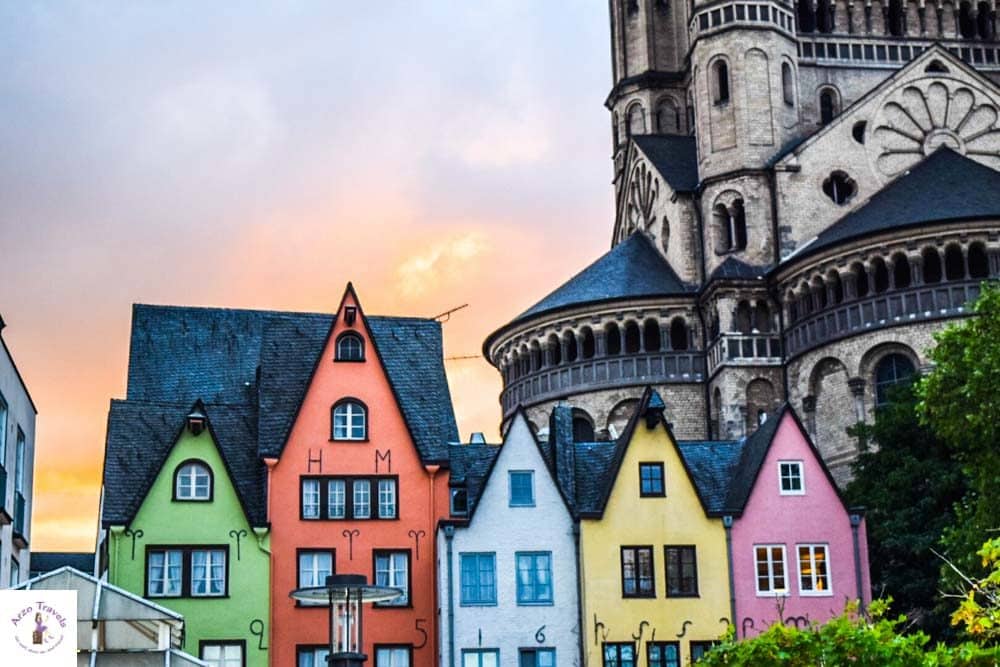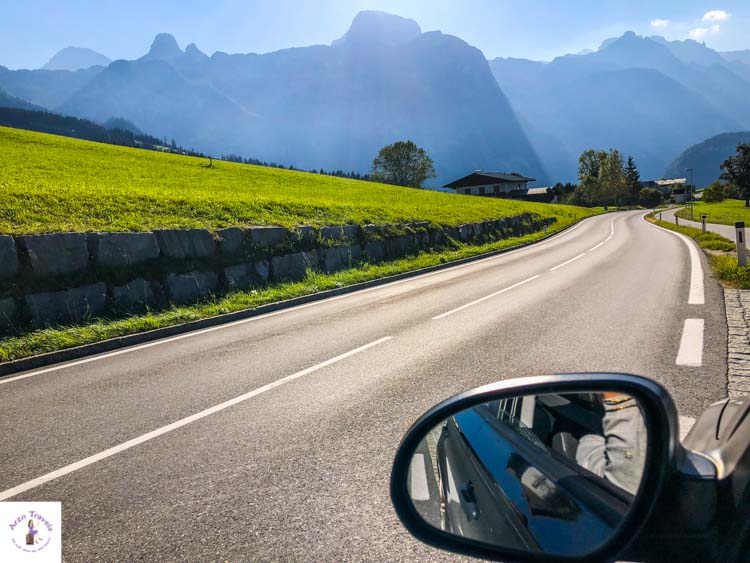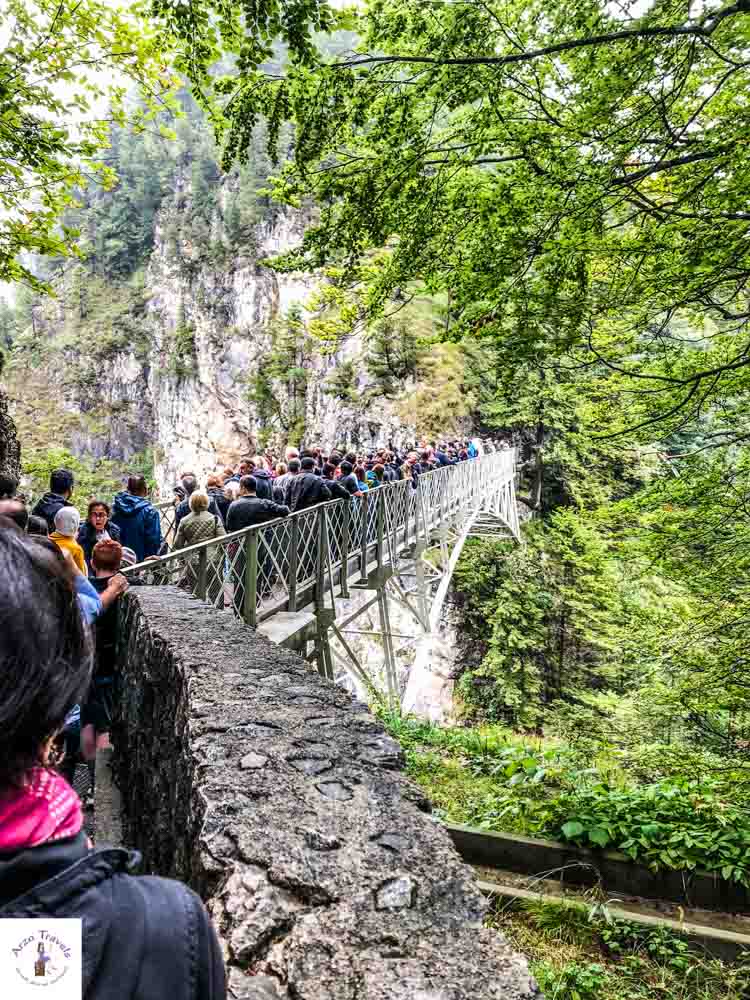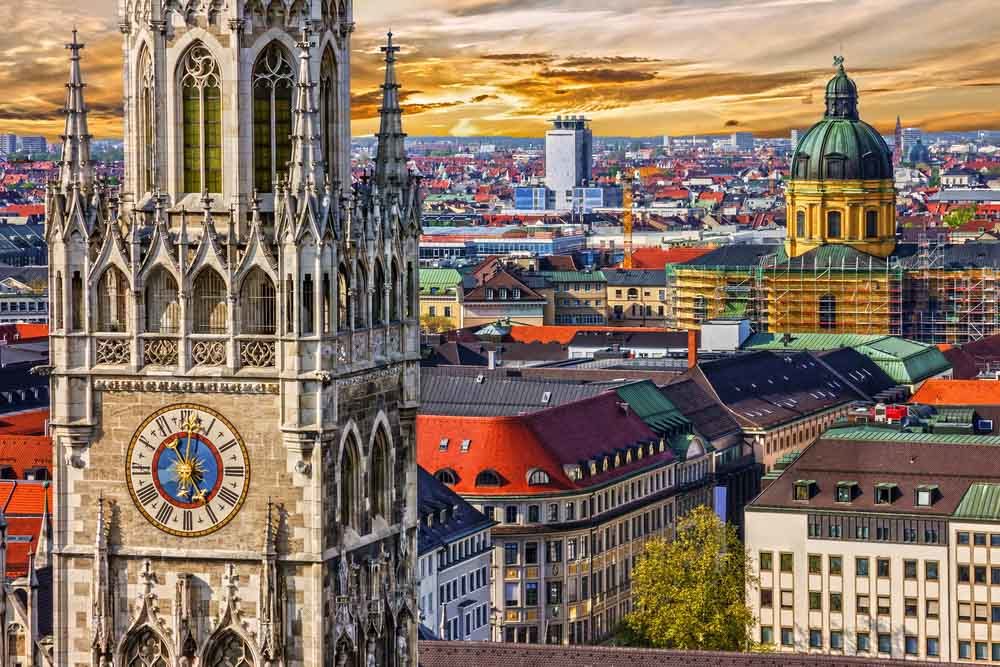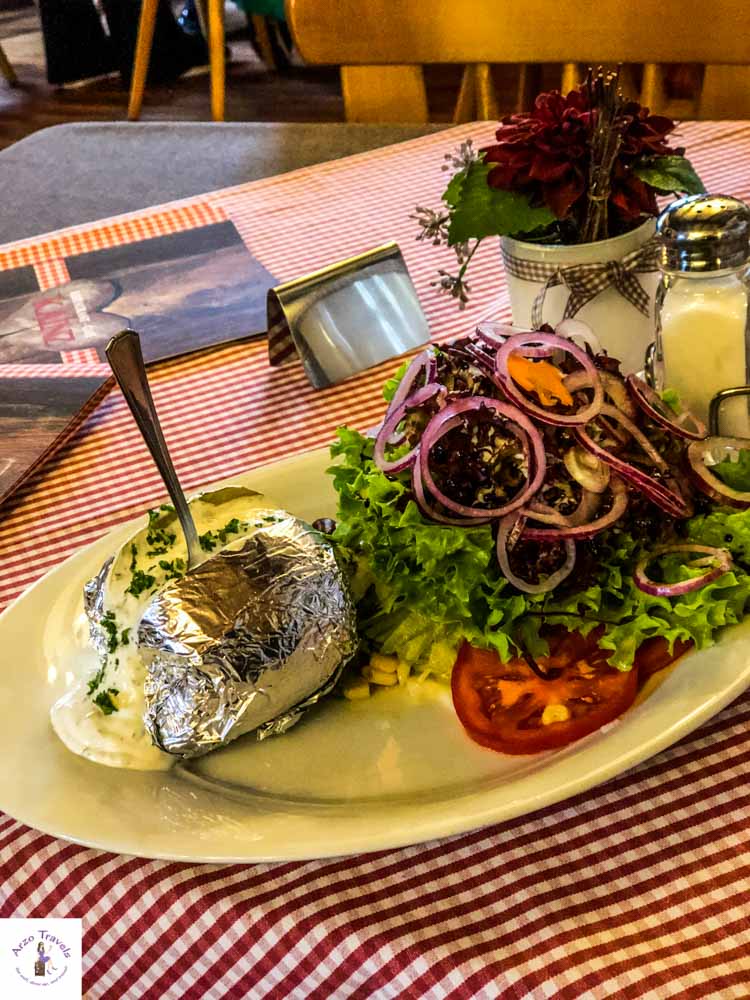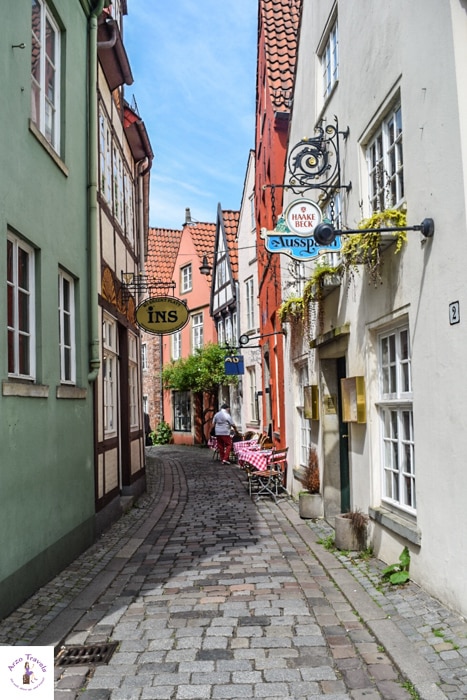THINGS TO KNOW BEFORE VISITING GERMANY – BEST TRAVEL TIPS
Read on if you want to find out about the best Germany travel tips – here are things to know when traveling to Germany.
As a German myself, I used to neglect the beauty of the country for too long. I think this is what happens to many of us. However, lately, I have started visiting more places in Germany. There are so many fun and vibrant cities, beautiful villages, and towns, not to mention the mountains & lakes and even some beautiful beaches in Germany. However, I have realized how many misperceptions there are. And to be honest, Germany is such a big (geographically and population-wise) country that it is not easy to generalize and talk about “Germans.”
Germany is so diverse that you will surely have a great and fun time – but keep the tips below in mind when you visit Germany for the first time – the best Germany travel tips.
Best Travel Tips for Germany – Things to Know for a Trip to Germany
Language in Germany
Germany has one official language – German. But there are a lot of different dialects of German that are spoken. High German, which is taught in school, is mostly spoken in the country’s northern parts. The eastern and southern parts speak different dialects. I would say that, except for children, almost everyone understands High German, but they may not speak it.
Anything in writing is in High German, and news is also in high German (so if you want to improve your German skills, keep in mind that it is important where to visit).
Most Germans understand basic English. The younger generation, in particular, has a good grasp of English because they learn it in school as their first foreign language though they are shy to speak English.
In the cities, you will hear other languages, as many Turkish, Russian, and Polish people live in Germany.
People think that German sounds harsh and aggressive, like Arabic, but I’ve never noticed that. Sometimes people hear others speaking German and think they are arguing, but it’s just the way they talk. I have written down some of the most important sentences for travelers that you can check out here.
People in Germany
If you are a first-time visitor to Germany, it’s important to know what to expect from the people. A common perception is that Germans are rude and cold. They are not the friendliest or most fun people, but if you need help, they will give it. Feel free to approach people. They might be reserved, but they are still polite.
In Cologne, people are very friendly, but in Hamburg and other northern cities, they are colder. My tip is just not to expect too much.
Best Time to Visit
It really depends on what you expect from your Germany holidays. Are you looking for some fun winter sports? Then you should visit some areas in Eastern Germany or Southern Germany from December to February.
Do you want to visit German Christmas markets and experience a more romantic atmosphere? Then visit the first 3,5-4 weeks in December.
P.S. Bremen´s Christmas Market is one of the best in the country, so check out my post on the Christmas Markets (there are actually two) in Bremen.
However, most people like to visit from April to September. October could be okay, though the weather might have gotten a bit iffy.
Of the 16 states in Germany, each has its own school holidays, so be aware of them when planning your itinerary. July and August are the hottest months and likely the busiest. But some places might actually be quieter as locals are vacationing out of town during the holidays.
Weather in Germany
Here’s an important tip for traveling in Germany: you can never rely on the weather. Last February, for example, it was sunny and 22ºC (71ºF), then March was cold and snowy. Make sure to bring a warm winter jacket, even in spring. For visits in June, July, or August, you will need an umbrella, raincoat, and waterproof shoes, even if it’s warm.
Typically, the winters get cold, and the summers as getting warm to hot.
However, this also changes a lot, and there were summer months when we hardly saw the sun, and then we had summers when it got hot – my tip: Never rely on the weather to 100%.
Public Transportation in Germany
Germany is one of the world’s richest countries, but despite that, public transportation is not as good as in other places. Trains come late, and some are canceled without notice. In general, it’s not that bad, but not at the same level as you would expect. However, it is probably not as bad as I portray it – my expectations are high, and the Deutsche Bahn can’t meet them.
Despite this, public transportation is big in Germany, and many people take trains, buses, subways, etc. Overall, it is a good way to get around in the city centers.
Cycling in Germany
While cycling in Germany is not as popular as in the Netherlands, I should mention that cycling is big! You see kids as well as adults cycling in cities. Often, there are specific bike lanes for them (and if you road trip Germany, then do not use them).
Some cities might even look like the Netherlands with all the bikes – like Münster. Especially in the flat regions – aka Northen Germany – cycling is popular. If you want to cycle in Southern Germany, you might need a mountain bike – if you are in Germany, you should definitely give cycling a go!
Driving in Germany
Driving in Germany is quite relaxed, except in the city centers, like Berlin, Cologne, Munich, and Hamburg, where there is traffic and many places to park. Side streets are often narrow, so be careful when driving on them.
The highways are in good condition, safe, and big, but there is always a lot of construction.
There are highways without speed limits, but there are also many that do have them. The typical speed limit is 120-130 kph on motorways. Normally, you see many signs with a speed limit.
When you’re driving through northern Germany, it is less scenic and very green and flat. In central Germany, you’ll notice a lot more scenic landscapes.
There are no tolls for cars/camper vans etc. Only trucks have to pay for using the motorways.
Tourists in Germany
Germany has many attractions, like Neuschwanstein Castle and Rothenburg ob der Tauber, but not as many as in other countries, and usually not as crowded. You don’t need to skip the line tickets very often, but you might need to buy your tickets in advance, as some things sell out.
In general, Berlin is a popular place to visit. You´ll also find many young tourists from all over the world – places like Neuschwanstein Castle are extremely popular amongst Asian tourists.
Electricity in Germany
Electricity in Germany is excellent and is the same system as in most of Europe. You may need an adapter if you are traveling from outside Europe, as Germany uses 230 volts instead of America’s 120 volts.
Water in Germany
The tap water in Germany is good in most places so you can drink it. In central and southern Germany, you will find many water fountains that provide even fresher and tastier water, but unfortunately, these are not found in the northern part.
Restaurants do not give tap water to diners. Even if you ask for non-sparkling water, they will give you bottled water and charge you for it. Germans love sparkling water, and they have medium and strong varieties. Make sure to specify that you don’t want sparkling if that is your preference; ask for still water.
Different Parts of Germany
Germany is made up of 16 states, and the different sections of the country vary greatly – from the northern to the central, to the eastern, to the southern. Five states were once a part of the former GDR (East Germany), and the other 11 made up West Germany. You can see variations in not just language as you travel throughout the country but also in culture, prices, and food.
Toilets in Germany
Yes, I have an extra section about public toilets in Germany. Pee is not free…
In Germany, toilets are not free. You will have to pay for public restrooms. Even as a guest or at popular hotspots, you may still have to pay.
The cost is about 0,50 – 1€. If you use the restrooms in train stations or gas stations, they cost about 0,70€, and then you get a 0,50€ voucher to buy something – in those cases, you have to throw the money in a little vending machine.
Sometimes someone is sitting in front of the restroom, and you are supposed to hand that person the coins (no vouchers in those cases).
Credit Cards / Cash in Germany
Credit cards are often accepted in Germany, but not always. Debit cards are more common. Germany is not as advanced as Sweden or the US when it comes to using credit cards, but it is becoming more common. My Germany travel tip is to always have enough cash (€uros) on hand, as there are some places where cards are not accepted at all.
Costs in Germany
Germany is a quite expensive country to travel to – it is definitely way cheaper than Switzerland or Norway. Still, it is more expensive than countries in Eastern Europe, or even Italy, Spain, and Portugal.
However, there are huge price differences within Germany. Of course, main tourist magnets are more expensive – staying overnight in Munich or near Lake Königssee or Neuschwanstein Castle costs quite a lot. Bavaria, the most southern state in Germany, is the most expensive travel destination regarding food, accommodation, tours, and gas. Eastern Germany is much cheaper (overall spoken) than Bavaria or Western or Central Germany.
While it is tough to name average prices, here is an idea:
A cup of cappuccino costs about 2,5-250€. Petrol is about 1,20-160€ for one liter (diesel is a bit cheaper than petrol here). A pizza (vegetarian) in a restaurant can be anywhere between about 6€-14€.
Grocery shopping, however, can be ridiculously cheap compared to the overall prices. There are many discounters – 500g of the cheapest pasta is about 0,60€ (organic and wholemeal pasta is about 1-3€).
Tipping in Germany
Tipping is common in Germany but not a must. It’s normal to leave about 10% at restaurants, and you can also tip taxi drivers, the reception desk at your hotel, and the cleaning lady (1-2€ a day should be fine).
You might want to check and make sure this isn’t already included in your bill, but usually, it’s not.
Taxes in Germany
In Germany, all prices in hotels, restaurants, and shops already include the tax. It is about 7% for “necessities“ like food, and about 19% for most other items. So, if you see a price in a supermarket/shop etc., it is the final price.
Food in Germany
Food varies greatly depending on which part of Germany you are in. Northern Germans supposedly eat much fish, but I grew up in the north and haven’t eaten it.
Germans in the south eat a lot of meat, especially pork. Their diets are more hearty and fatty. Vegetarians and vegans will have an easier time in cities, especially in university towns with health-conscious students.
Most meats are made of pork (especially sausages), but chicken and beef are very popular so just be aware of that. And if you have allergies, you can ask for alternatives when dining out.
You will find all kinds of cuisines here. Germans love Italian food, so there are many Italian restaurants, Turkish and Chinese restaurants, and many fast-food chains. But you can also find Indian food, Spanish restaurants, and Vietnamese or Thai food (and I am sure there are many other cuisines in bigger cities, too).
P.S. Germans have the nickname “potato,” and it is true, we eat a lot of potatoes. So, if you are in Germany, find out about our potato dishes (cheap and delicious).
Beer in Germany
It’s true, Germans drink a lot of beer. Some famous ones come from Germany, but there are many different kinds for you to try. There are even seasonal drinks, such as a mixture of beer and Sprite, popular in the summer.
Hotels in Germany
The standard for hotels in Germany is not bad. There are many chain hotels, 4 and 5-star accommodations, budget hotels, family-owned ones, and Airbnbs. Some places have special guest cards, but not all. Three-star hotels in Germany are fine most of the time and better than France, Italy, or Turkey.
Hidden Gems in Germany
Germany has quite a lot of hidden gems. Munich, Neuschwanstein Castle, or Berlin might be no hidden gems, but there are so many cute and wonderful places. Cities like Bremen are less crowded and cheaper, but equally beautiful that you can visit.
Traveling with Dogs in Germany
Germans love their dogs. You will see them everywhere, from restaurants to shopping malls. They are not allowed in supermarkets, however, nor in museums or at religious sites. Hotels will allow dogs to stay, but always check to see how much they will charge first. The pet fee is usually 5-15 euros a night. So, if you’re planning to travel with your dog, Germany is dog-friendly.
Traveling with Kids in Germany
It is said that Germans are not very kid-friendly, but that shouldn’t deter you from traveling here with kids.
There are many free attractions for young kids, and transportation is often free for the little ones. While there are some places where young children are not allowed, like certain restaurants, they are otherwise welcome, and my Germany travel tips for visiting with children is: Choose the place according to places you enjoy, and the rest will be fine, too.
Beaches/Outdoor Places in Germany
If you’re visiting Germany and looking for outdoor fun, they have some beaches by the Baltic Sea and the Northern Sea. These beaches are beautiful, but the weather is so erratic that I would never recommend it as a beach vacation destination. Even in the summer, it can rain for a week or two straight.
There are no beaches in the southern part of Germany, but there are mountains and beautiful lakes. And don’t we all love mountains? And don’t we all love lakes? But even in Eastern Germany and the central parts of the country, there is some lovely scenery with plenty of hiking options.
Insurance in Germany
One of the best German travel tips I can give is to have insurance. We Germans love to be insured – health insurance is mandatory, but I guess we have all kinds of insurance. However, as a visitor from abroad, you most likely have to get health insurance – of course, because I am German, health insurance is essential to me.
So, if you are from the European Union and have health insurance in your country, you might be automatically insured, but please, please double-check. If you are not insured, check out if travel health insurance (and probably some other insurances) might make sense for your Germany trip.
WiFi in Germany
You will have no big issues with free wifi in many central areas or main tourist attractions – you can often log in by signing up with your Facebook account or with your email address or phone number. In cafes and restaurants, wifi is also common but if you depend on it, ask before choosing your restaurant.
If you travel in rural areas, especially when passing by train, you might have problems connecting to the Internet. Yes, this is Germany – one of the world’s richest countries, but the Internet and public transportation are not our strengths. Well, but if you don’t need internet 24/7, you will find free wifi at many places.
READ MORE
- Rothenburg ob der Tauber – the prettiest town in Germany – click here to find my best travel tips for Rothenburg.
- Read my travel tips for the most famous German castle – Neuschwanstein Castle.
- Find my tips for your Germany itinerary – places to visit in 10-14 days in Germany.
There is a lot to see and do in Germany, and knowing a little bit about the country will help make your experience even better. I hope that these Germany travel tips will make your trip easier and more fun.

